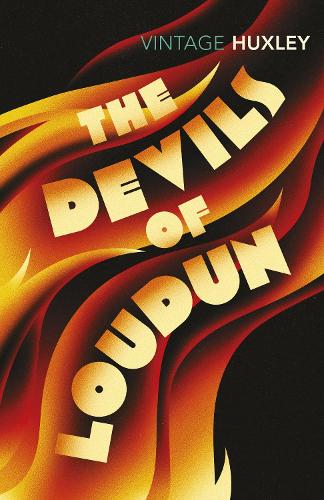
The Devils of Loudun
(Paperback)
Publishing Details
The Devils of Loudun
By (Author) Aldous Huxley
Introduction by David Bradshaw
Vintage Publishing
Vintage Classics
1st June 2005
7th April 2005
United Kingdom
Classifications
General
Non Fiction
History of religion
Religious aspects of sexuality, gender and relationships
Sentencing and punishment
Christian and quasi-Christian cults and sects
Religious intolerance, persecution and conflict
133.426094463
Physical Properties
Paperback
400
Width 130mm, Height 200mm, Spine 25mm
823g
Description
In 1634 Urbain Grandier, a handsome and successful seducer of women and priest of the parish of Loudun, was tried, tortured and burnt at the stake. He had been found guilty of being in league with the devil and seducing an entire convent of nuns in what was the most sensational case of mass possession and sexual hysteria in history. Grandier maintained his innocence to the end and four years after his death the nuns were still being subjected to exorcisms to free them from their demonic bondage. Huxley's vivid account of this bizarre tale of religious and sexual obsession transforms our understanding of the medieval world.
Reviews
Huxley has reconstructed with skill, learning and horror one of the most appalling incidents in the history of witch-hunting during its seventeenth-century heyday. The Devils of Loudun is fascinating, erudite, and instinct with intellectual vitality * Times Literary Supplement *
Huxley's analysis of motive, his exposition of the unconscious causes of behaviour, his exposure of the perversions to which religious emotion is subject, his discursions on the witch cult, on mass hysteria, on sexual eccentricity have the brilliance that all his writing has had from the very beginning * Spectator *
One of Huxley's best books * Guardian *
His masterpiece, and perhaps the most enjoyable book about spirituality ever written. In telling the grotesque, bawdy and true story of a 17th-century convent of cloistered French nuns who contrived to have a priest they never met burned alive ...Huxley painlessly conveys a wealth of information about mysticism and the unconscious * Washington Post *
Author Bio
Aldous Huxley was born on 26 July 1894 near Godalming, Surrey. He began writing poetry and short stories in his early 20s, but it was his first novel, Crome Yellow (1921), which established his literary reputation. This was swiftly followed by Antic Hay (1923), Those Barren Leaves (1925) and Point Counter Point (1928) - bright, brilliant satires in which Huxley wittily but ruthlessly passed judgement on the shortcomings of contemporary society. For most of the 1920s Huxley lived in Italy and an account of his experiences there can be found in Along the Road (1925). The great novels of ideas, including his most famous work Brave New World (published in 1932, this warned against the dehumanising aspects of scientific and material 'progress') and the pacifist novel Eyeless in Gaza (1936) were accompanied by a series of wise and brilliant essays, collected in volume form under titles such as Music at Night (1931) and Ends and Means (1937). In 1937, at the height of his fame, Huxley left Europe to live in California, working for a time as a screenwriter in Hollywood. As the West braced itself for war, Huxley came increasingly to believe that the key to solving the world's problems lay in changing the individual through mystical enlightenment. The exploration of the inner life through mysticism and hallucinogenic drugs was to dominate his work for the rest of his life. His beliefs found expression in both fiction (Time Must Have a Stop,1944, and Island, 1962) and non-fiction (The Perennial Philosophy, 1945; Grey Eminence, 1941; and the account of his first mescaline experience, The Doors of Perception, 1954). Huxley died in California on 22 November 1963.
